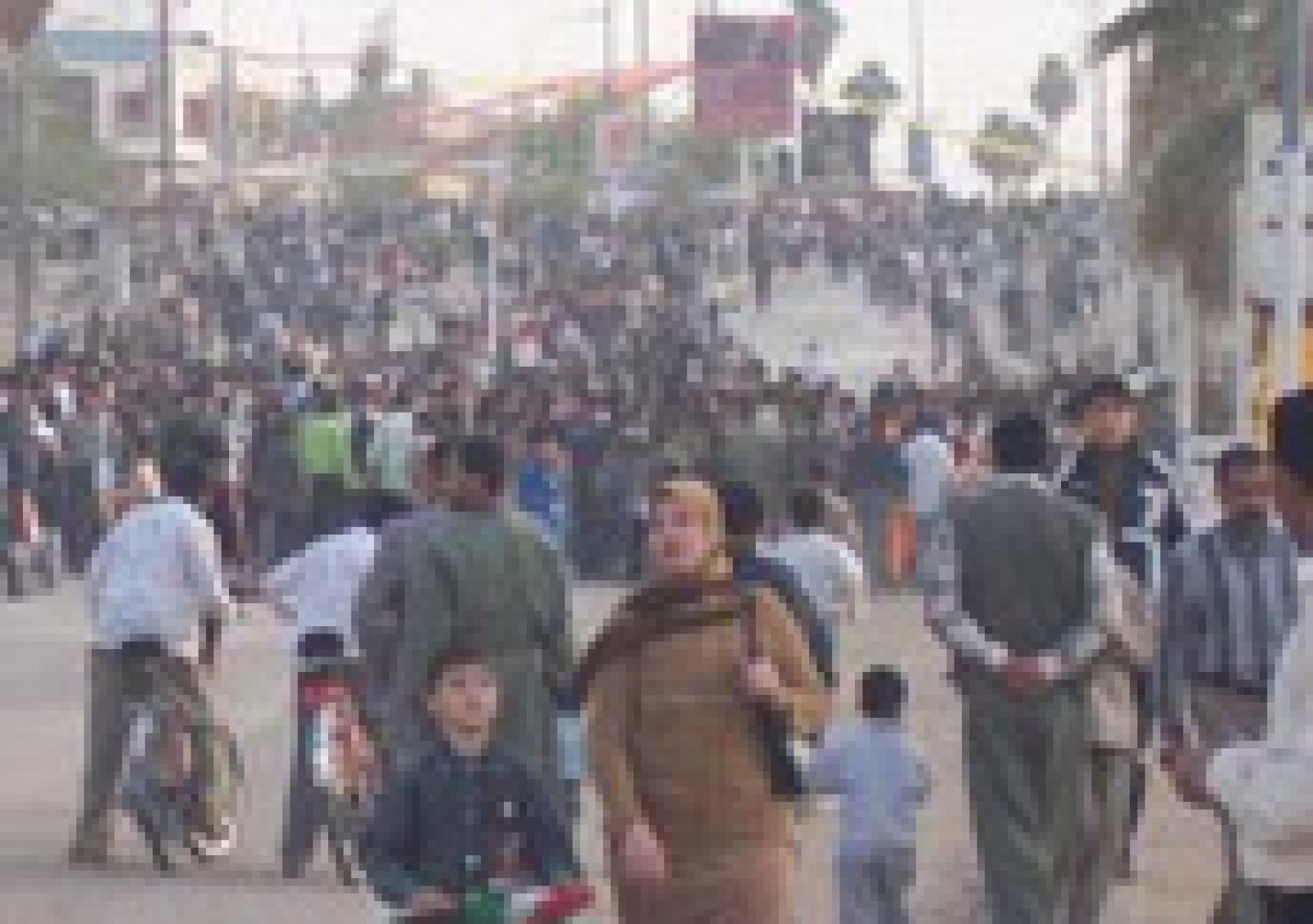
SHARE
Between October and November of 2006 NDI conducted a series of focus group discussions in nine Iraqi provinces. These discussions revealed that one year after the passage of a constitution and the election of a permanent government, Iraqis are experiencing frustration bordering on despair regarding their living conditions and the state of affairs in their country. Measured expressions of hope and optimism found in earlier research have largely been replaced by words of disillusionment and suspicion.
“Religious leaders should be avoiding political issues and condemning sectarian disputes wherever they are, supporting politicians, avoiding all suspects of their impartiality and advising people and telling them about the prohibition of killing and migration of others and they should destroy sectarianism which is the reason behind all of the problems of Iraq.” (Iraqi Man, 36, Fallujah)
It appears that most Iraqis recognize sectarianism as the biggest factor undermining the stability of their state. Regardless of ethnic background, most Iraqis directly connect sectarian conflict to the obstruction of political progress, economic development, and security. Women’s rights, in particular, are increasingly affected by the pervasiveness of religion in daily life. Fears are particularly pronounced in urban Baghdad, by both Sunni and Shia women.
Almost all of the participants in the focus groups argued that people who are using religion in politics are not honest representatives but rather corrupt people who seeking political power by manipulating the feelings of the masses. Iraqis from the North seem to isolate themselves from the rest of the country in many concerns. Some of them speak as if the effect of religion and the problems it causes belongs to some other country. Shia participants are considerably more likely than Sunnis to welcome religion as an important factor affecting politics. Many think that religious influence is the right way to guarantee the proper functioning of state and social affairs.
There are some Iraqis, who assert sectarianism is exaggerated, or that its effect is positive rather than negative; these claimants are mostly conservative Shia, arguably those who reap the benefits of sectarian favoritism.
Ironically, while most Iraqis uniformly condemn sectarianism, many do so in explicitly sectarian terms. The essentially religious nature of Iraqi society is reflected in a belief, seen across sects, that religion and religious leaders can and should diffuse sectarian tensions, promote peace and cooperation. Sunni, Shia, and even secular Iraqis all recognize the influence and importance of religious figures, stressing the desire to see this influence exerted for the national good.
The absence of effective government and political authority pushes many otherwise moderate Iraqis toward religion. In an environment of crisis and deprivation, Iraqis increasingly gravitate towards religious-affiliated organizations and parties, as they remain among the only entities that are able to provide security and services. Other secular Iraqis sometimes incline toward religion for fear of being targeted by extremist militias. Within certain Shia focus group sessions, the tension between conservative and more moderate and secular participants is more pronounced than ever.
The few non-Kurdish Iraqis, mostly conservative Shia, who claim that the country is moving in the right direction, express their satisfaction in terms of ideological and intangible developments such as democracy and freedom of religion, instead of concrete improvements to their daily lives.
Discussions with Iraqi Sunnis reveal an intense and unabated pessimism. When it comes to laying the responsibility for deteriorating conditions on someone’s shoulders, the options are many: the government, Shia religious men, the occupation, and neighboring countries are all seen as culpable for the adverse conditions.
Only among Kurds are there positive words for the current direction and future prospects for progress and peace. However, the most notable aspect of Kurdish commentary is the deepening disconnect between Kurds and the rest of Iraq. It becomes clear that their optimism is connected to the relative stability of conditions in the north and their separation from the chaos of central and southern Iraq.
Still, other Shia have a hopeful outlook which they explain by pointing to local reconstruction projects and the demise of the oppressive Hussein regime. The fact that Nouri Al-Maliki, a man who was in exile during that dark period, is now the Prime Minister of Iraq makes some participants satisfied enough that they seem able accept the current chaos as a tolerable price to pay on the way to freedom and political power. However, most Shia couch broadly positive assessments in terms of ideas such as democracy, representative government, and freedom of religion, rather than seemingly elusive improvements in day to day life.
It is interesting to note that a number of focus group participants, both Sunni and Shia, volunteer comments on technological growth as a positive recent development in Iraq. But most of them agree that the lack of security and services, unemployment and sectarian violence - which many say borders on and is likely to become a full civil war - are the defining characteristics of Iraq today.
While public institutions and figures lack both credibility and capacity, political and religious leaders still exert influence, and could conceivably bring their diverse constituencies toward a common political process of sorts. To even begin such a movement would require colossal and simultaneous investments of determination, statesmanship, and trust – three commodities that are often rare in emerging democracies, but especially so in Iraq where time is limited.
This material was drawn from a report on of focus group research conducted by NDI between October and November 2006. It represents opinions of 200 Iraqis from nine provinces: Basrah, Baghdad, Erbil, Anbar, Babil, Kirkuk, Mosul, Najaf and Suleymaniyah. The purpose of the original report was to summarize and convey the main findings of the research in an objective and organized manner in order to maximize the impact of ordinary Iraqi voices on NDI programming and on the debates surrounding their country’s future.
–
Published on May 2, 2007


